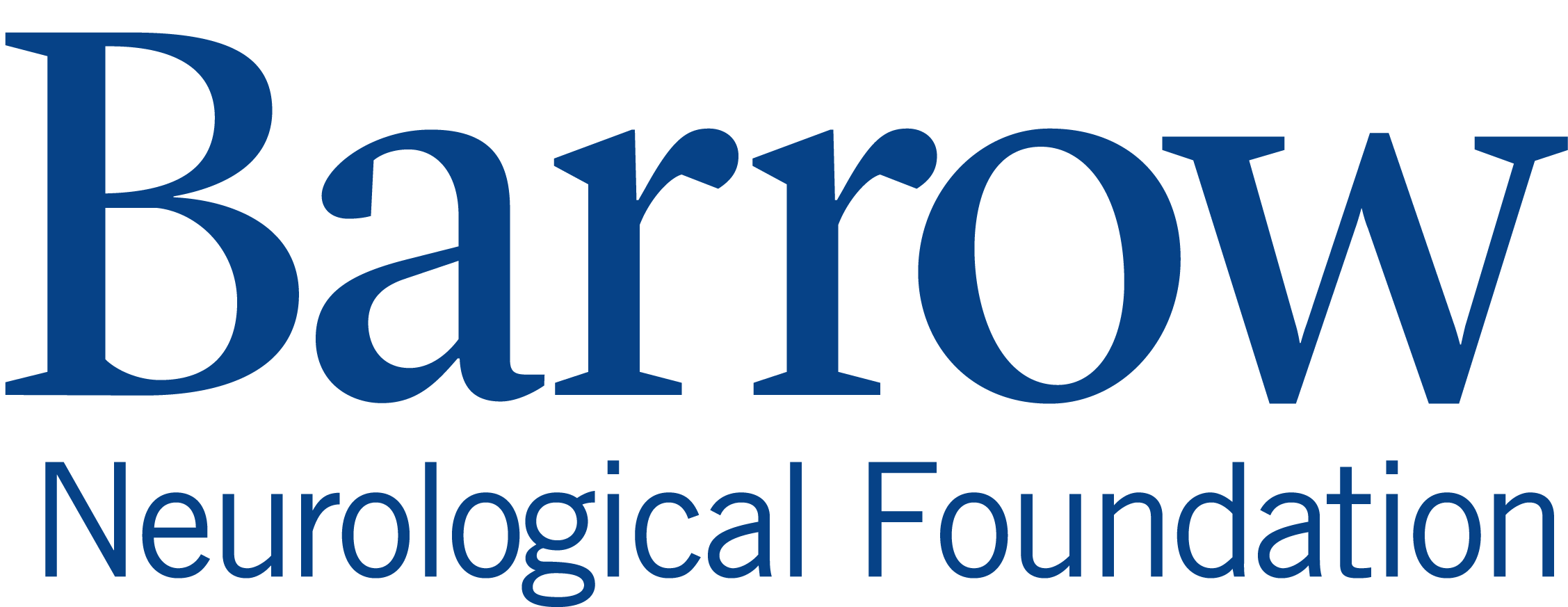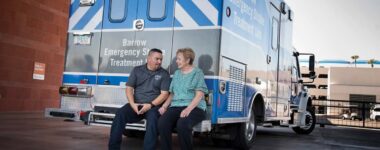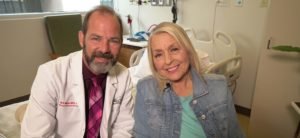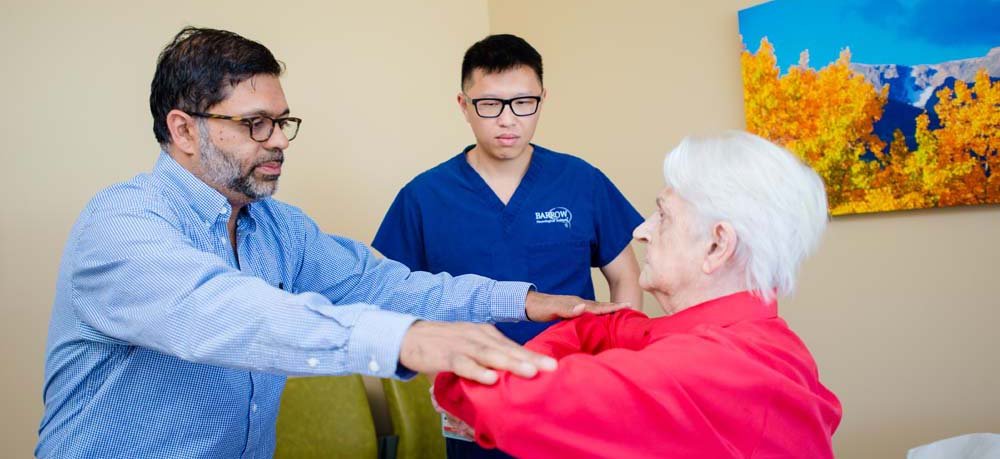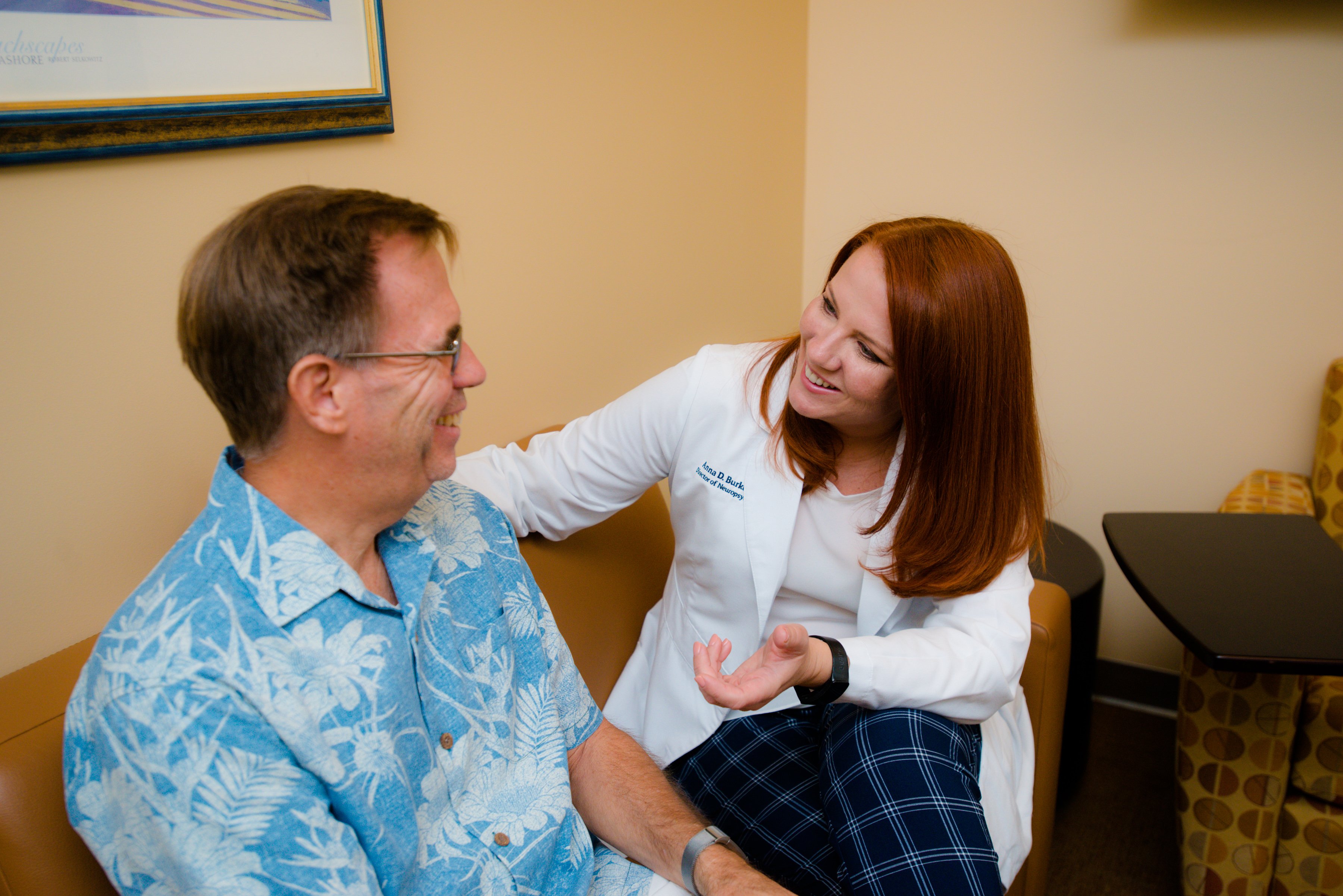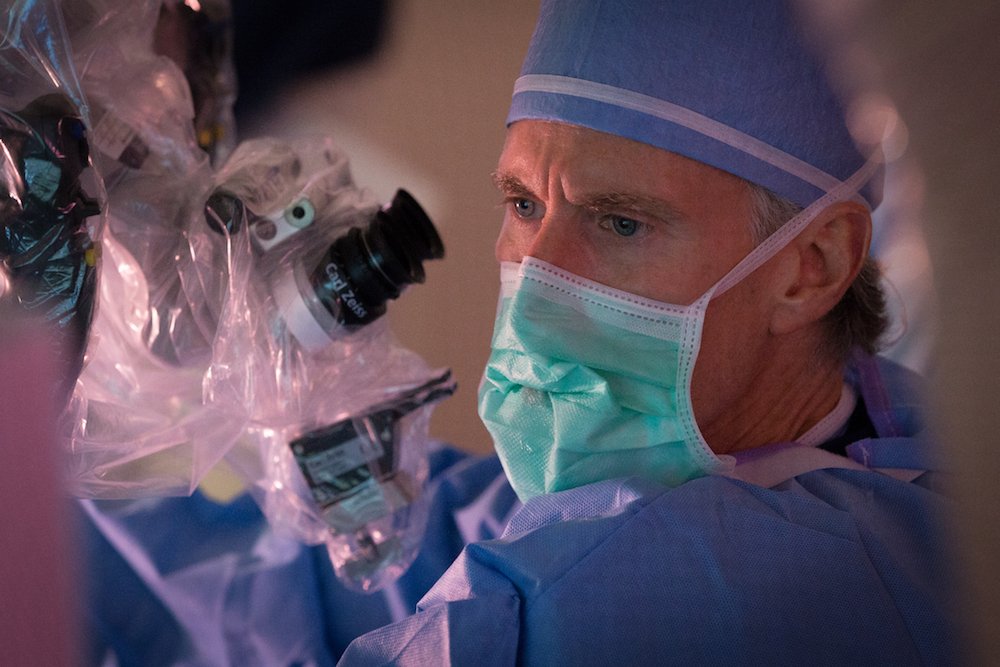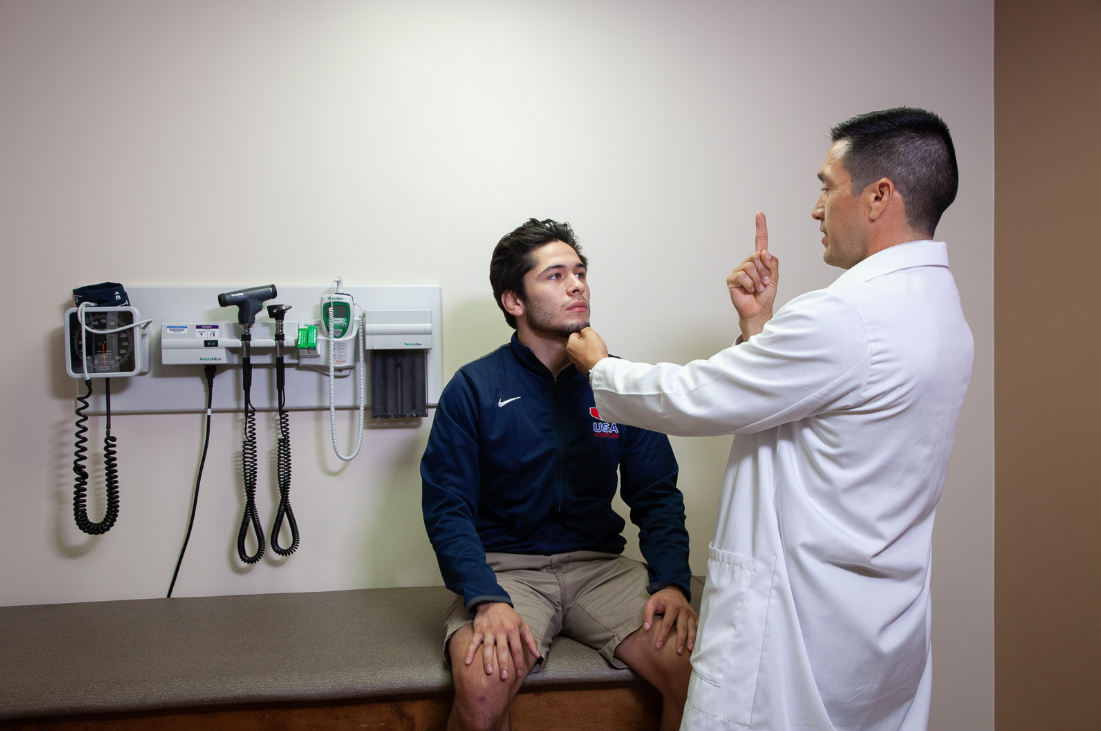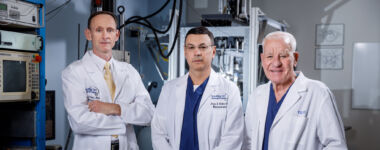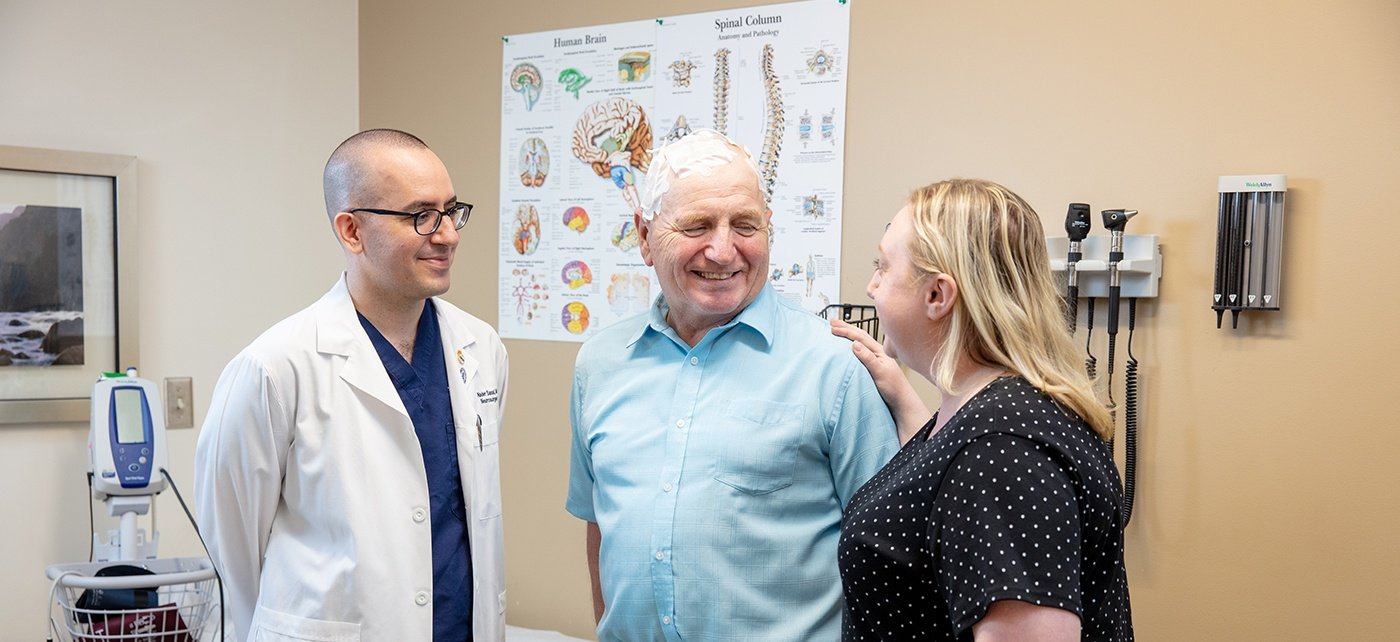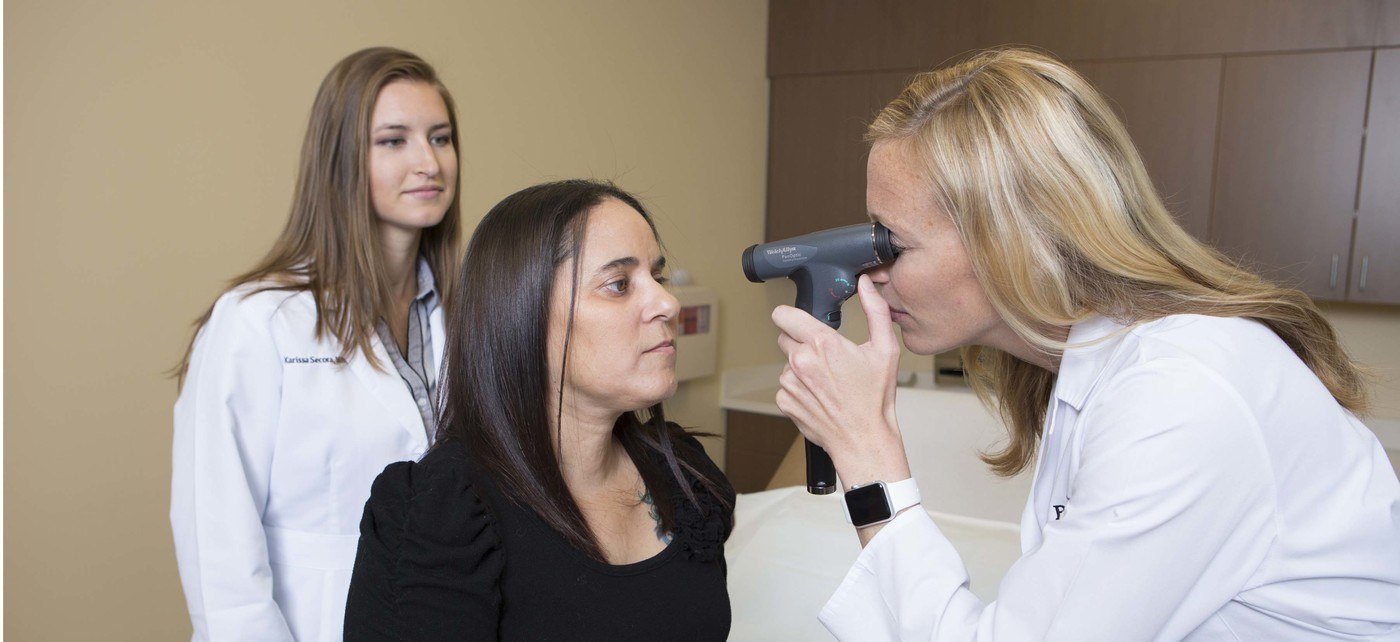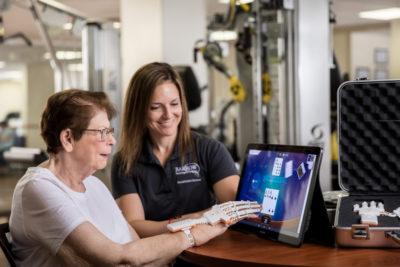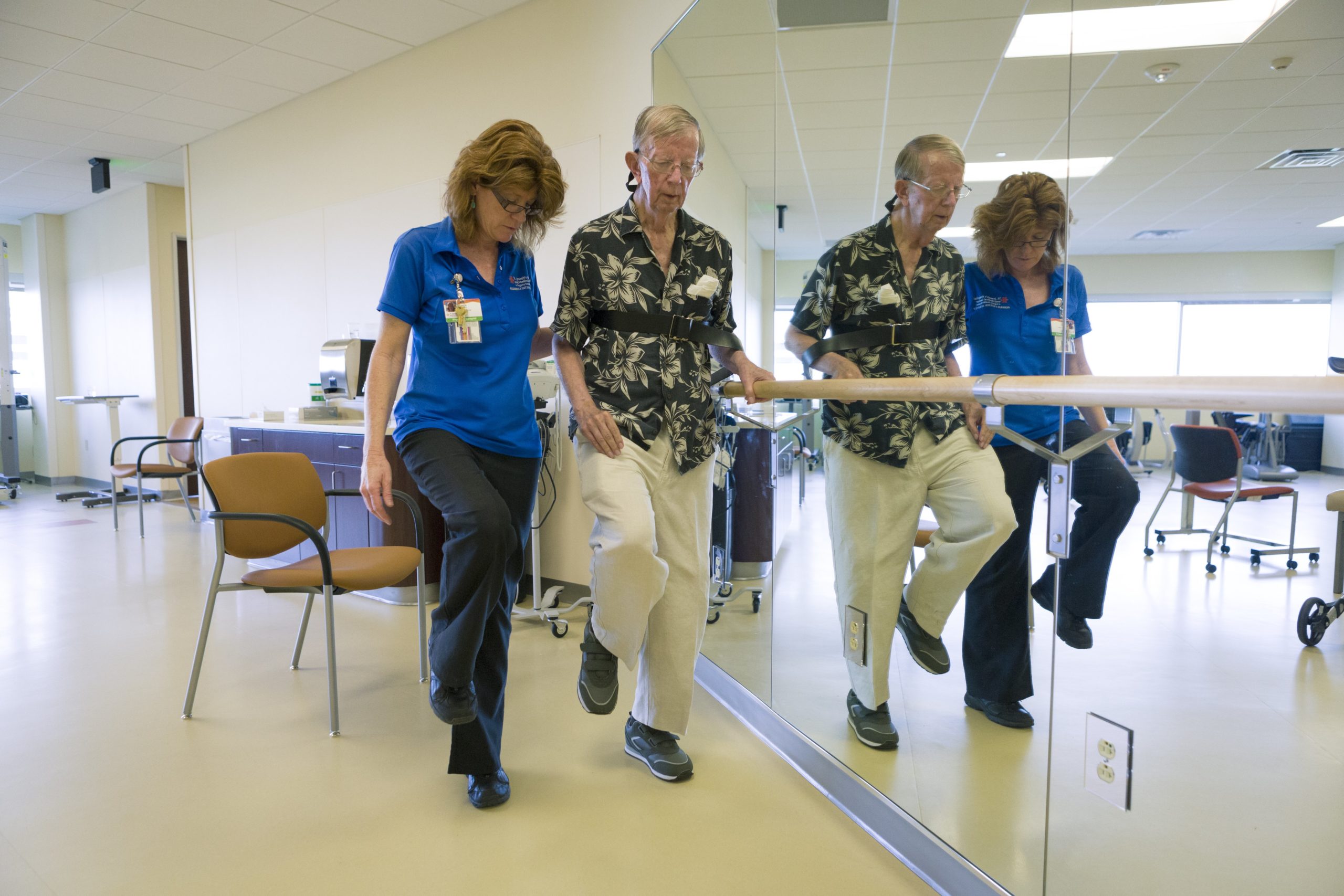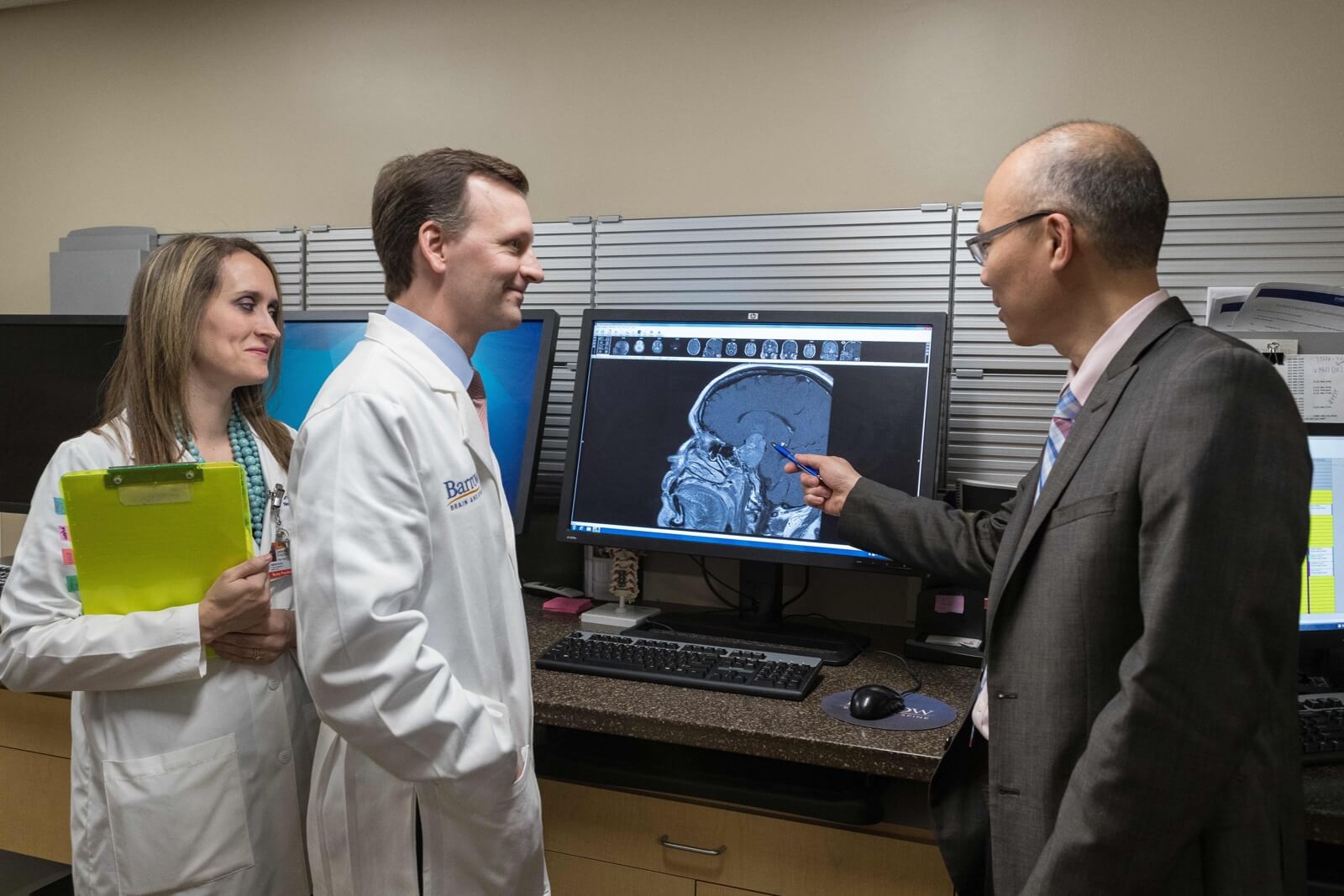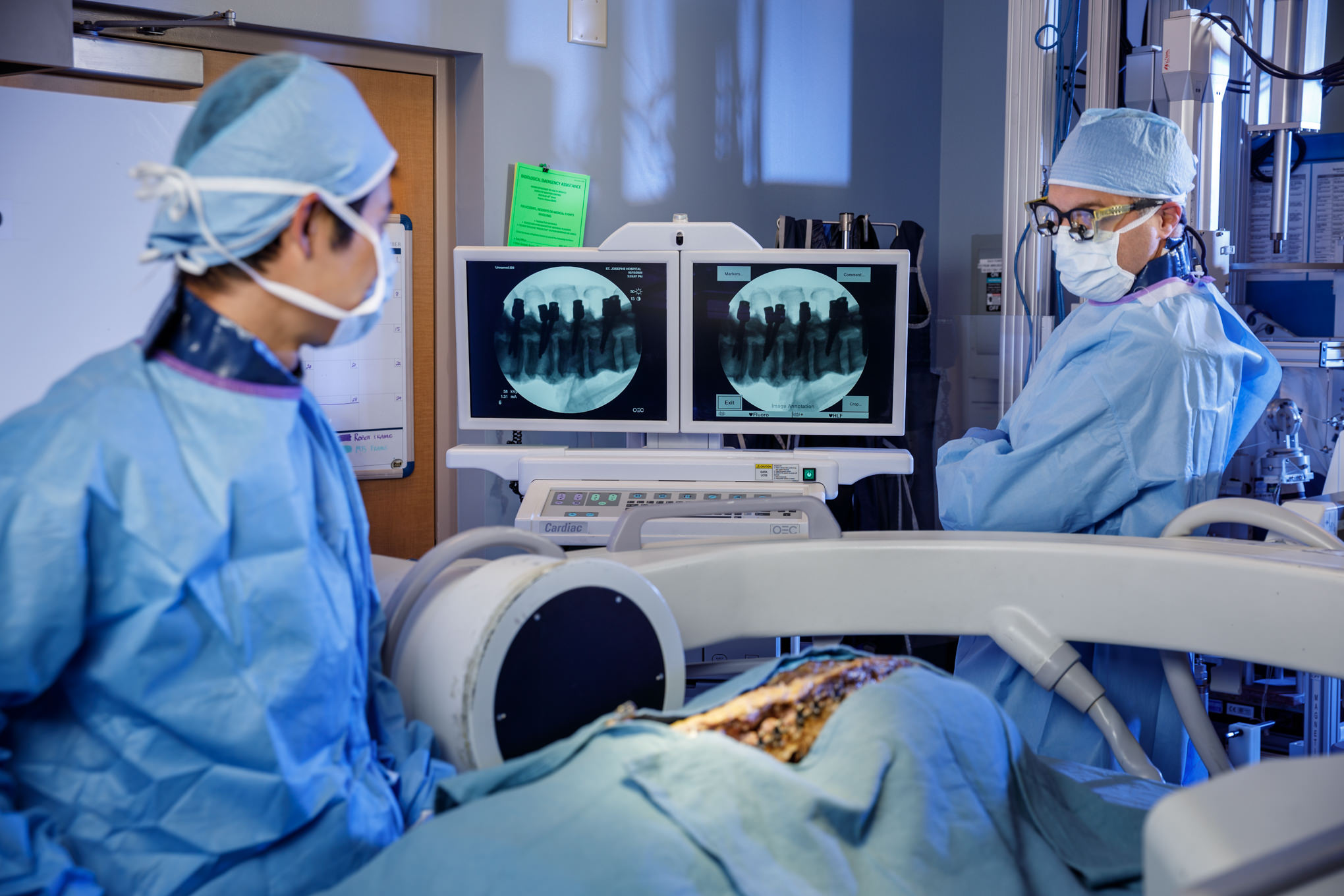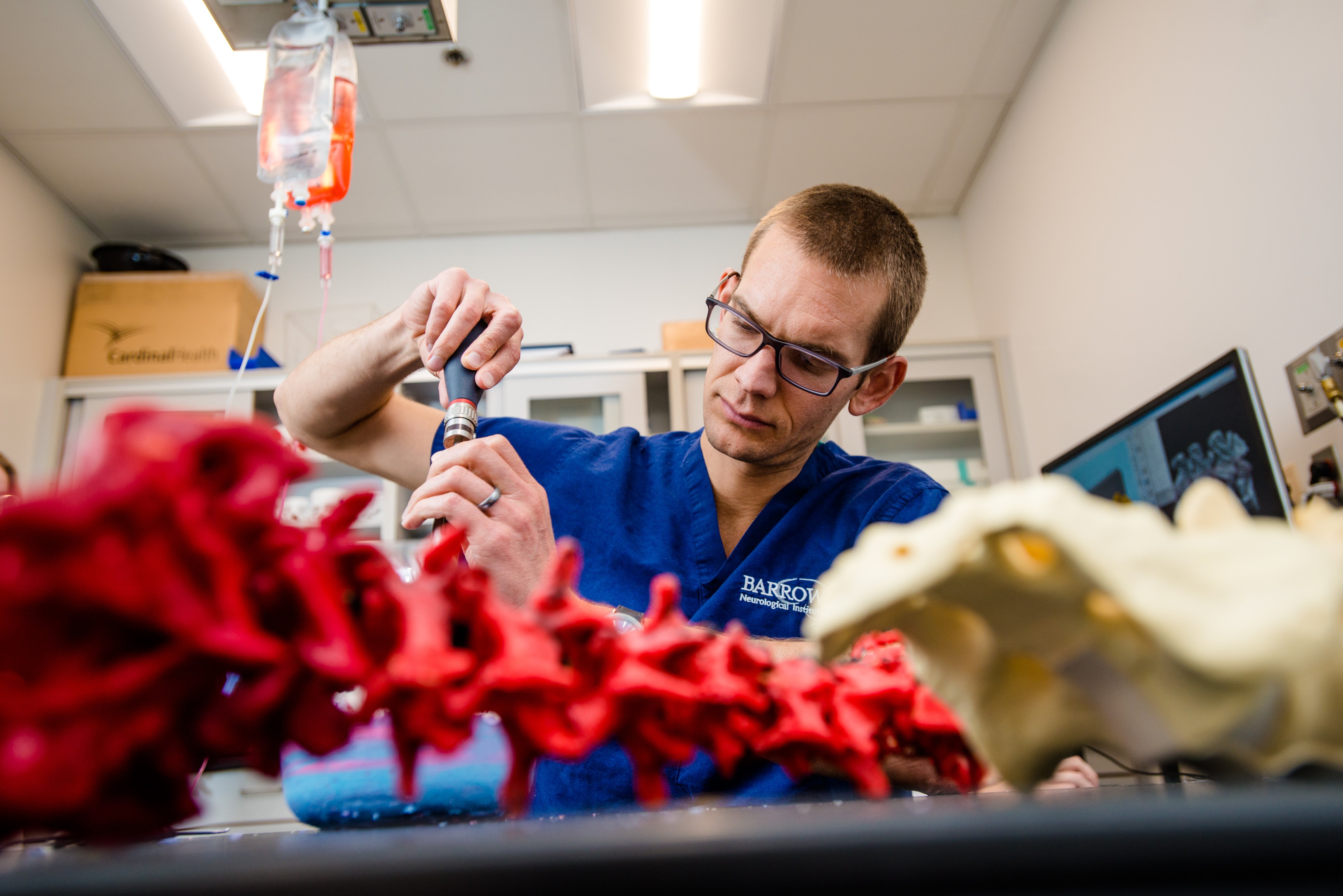
Petznick Stroke Center
Help Barrow ensure that every person who has a stroke receives expert vascular neurology care.
Donate to Support Stroke Research Studies and Treatment
Strokes are the leading cause of serious, long-term disability and the third leading cause of death in adults. One third of Americans have significant risk factors for stroke.
At Barrow, clinicians reject the norm of conventional treatments and aim to solve the challenge through the innovative Petznick Stroke Center. More than 1,100 stroke patients are treated at Barrow every year, many sent from other hospitals. And the Institute has treated more patients with tPA, the only FDA-approved “clot busting” drug, than any hospital in the United States.

Reducing Stroke Treatment Time
In stroke treatment, time is brain. Quick treatment is the key to saving stroke victims; the likelihood of a good outcome falls 10 percent for every 30 minutes that blood flow to the brain is blocked.
Barrow is reducing the time to treat stroke patients utilizing the Barrow Emergency Stroke Treatment Unit, a specially equipped and staffed ambulance that brings an emergency room to the home of a stroke victim. It is a powerful solution to closing the time gap to treatment. All vital drugs and imaging equipment are on board, and a neurologist consults via telemedicine. The unit, funded through charitable gifts, is one of only 10 in the country and the only one in the state of Arizona.

Stroke Research Helps Improve Patient Outcomes
Barrow’s team of doctors and researchers conducts more clinical stroke treatment and prevention trials than any other institution in the Southwest. “At Barrow we have an eye on innovation; we are not complacent. We are always looking for a better way to help our patients,” says Michael Waters, MD, PhD, director of the Petznick Stroke Center.
See what donations to stroke research have helped to achieve in research and patient care last year by downloading the FY23 Stroke Stewardship Report below.
Research Leads to New Stroke Treatments
Barrow researchers are developing two new drugs to reduce the damage of a stroke and improve recovery from one.
A neuroprotection drug would put a wall around the stroke’s damage, protecting healthy brain tissue. And another drug is being investigated to increase neuroplasticity, which would improve the ability of patients’ brains to re-learn functions lost during a stroke.
“If we can develop something to give when the patient comes to the hospital, that would be terrific,” says Dr. Waters. “And if every ambulance in the United States has it, that would be better.”
Barrow is one of the nation’s leaders in stroke treatment. Your support helps Barrow’s leading specialists continue to revolutionize stroke care for patients like LaVon.
Watch how the Barrow Emergency Stroke Treatment Unit helped save her life in the video below.
Enhancing Stroke Treatment and Care
Mobile Stroke Unit
The Barrow Emergency Stroke Treatment Unit is equipped with special technology, including a CT scanner and a mobile laboratory. The team can connect to a Barrow vascular neurologist via telemedicine, confirm the diagnosis, and begin a course of treatment before leaving the patient’s home.
Telestroke Program
The Telestroke program connects Barrow vascular neurologists with other community hospitals in real time, allowing them to diagnose and recommend a course of treatment for patients virtually.
Neurosonology Laboratory
Transcranial Doppler (TCD) ultrasonography is a non-invasive procedure that uses sound waves to measure blood circulation in the. Barrow is the first medical facility in Phoenix to provide TCD ultrasound technology for stroke in both an inpatient and outpatient setting.
Clinical Trials
Barrow was one of only 30 sites in the nation selected to participate in the NIH-funded DISCOVERY trial, which measures the cognitive impact of stroke. This will pave the way to treatments aimed at mitigating deficits such as memory, language, and behavior.

Your Donations at Work
At Barrow Neurological Foundation, your donation is crucial in supporting three key areas: advanced patient care, curative research, and education for the next generation of neuroscientists. Learn more about how your donation impacts each of the areas we treat.
